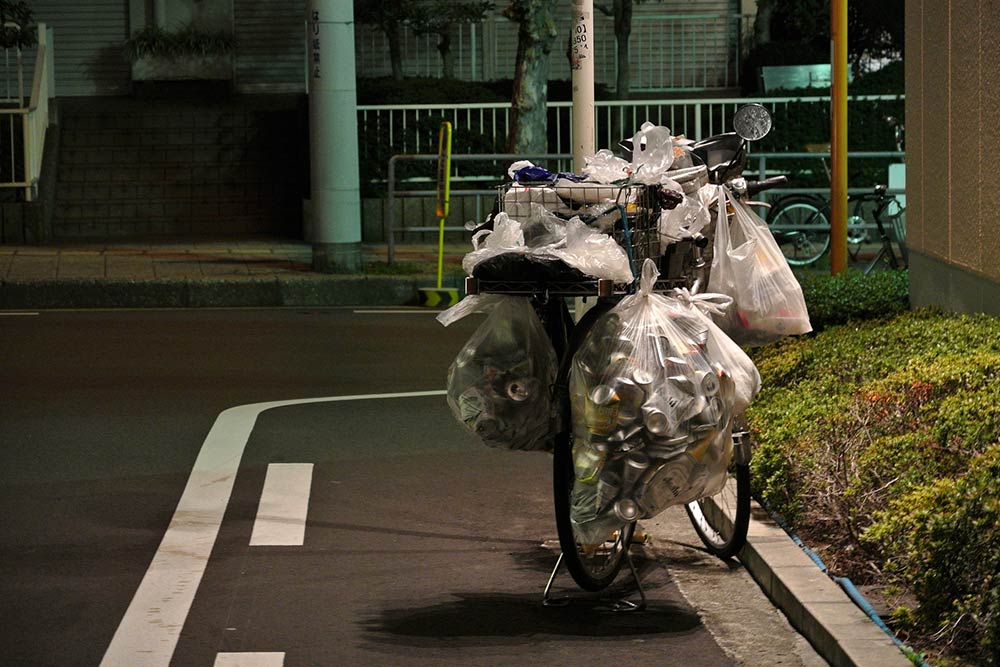
Image: m-louis .®
After decades of debating and lobbying for a solution to Australia’s not-so-unique littering problem, governments are finally becoming more enamoured with the idea of a Container Deposit Scheme, which is now under the spotlight in Queensland.
As part of a meeting in Brisbane where a range of stakeholders discussed how to plan and implement strategies in developing practical and cost effective solutions to climate change, they focussed their attention on Queensland’s adoption of a Container Deposit Scheme.
Such a scheme allows people to collect a monetary deposit on a soft-drink or other beverage container, creating an incentive for users to dispose of their recyclable waste.
It has been an ongoing arrangement in South Australia since container deposit legislation was introduced in 1977, where the refund is currently 10 cents per can or bottle.
Since then, other states have pondered the idea of introducing a similar scheme in their own state or territory jurisdictions, with some even been implemented.
Victoria governed a similar scheme until it was rescinded, and the Northern Territory was forced to temporarily cease its Container Deposit Scheme after it was introduced in 2012 because of a Federal Court challenge by beverage conglomerates Coca-Cola Amatil, Schweppes Australia and Lion Pty Ltd under the Commonwealth Mutual Recognition Act.
But now, due to the deeper environmental awareness that modern governments to have, regardless of ideological persuasion, Container Deposit Schemes are coming back in vogue, with New South Wales announcing that it will roll out a scheme in July 2017, despite fierce opposition and threats from beverage companies.
And the Labor government in Queensland has been a staunch backer of a Container Deposit Scheme, which has followed the previous Liberal National government’s dismissal of the scheme as more of a tax rather than a refundable deposit.
The recent discussion in the Sunshine State was led by Minister for Environment and Heritage Protection, and Minister for the Great Barrier Reef Dr Steven Miles, who said a separate container deposit advisory group met for the first time to weigh up option for a scheme in Queensland.
“We need to empower people to make good choices about managing products once they have reached the end of their useful life, and exchanging cans and bottles for cash is an option being explored,” Dr Miles said.
“We know this has been done in other places, but we want to make sure we get the best fit for Queensland.”
Dr Miles warned that common debris such as an aluminum can might take 200 years to break down, while plastic bottles can take anywhere from 450 to 1000 years.
“After cigarette butts, drink containers are the most common item found in the litter stream, making up a quarter of rubbish collected during last year’s Clean up Australia Day, and plastic bags are also found in significant numbers,” Dr Miles said.
He said plastic and glass bottles and aluminum cans are all recyclable and there is no reason why they should end up in the environment.
According to Dr Miles, the government was committed to conducting a thorough consultation with the community and industry groups and that any proposal would work with existing programs.
“Any scheme the Queensland government endorses will complement, not compete with, kerbside recycling,” Dr Miles said.
Environmental advocacy group Boomerang Alliance Queensland manager Toby Hutcheon said there would be a lot of proposals for the advisory group to consider.
“We will work hard to help identify an effective and comprehensive scheme that will slash container litter rates and dramatically increase recycling on a sustainable financial basis and hope all parties can support this,” Mr Hutcheon said.
The introduction of a Container Deposit Scheme isn’t the only environmental solution that the Queensland government is considering. It has also announced that it will initiate public consultation on possible restrictions on single-use plastic bags early in 2016.





